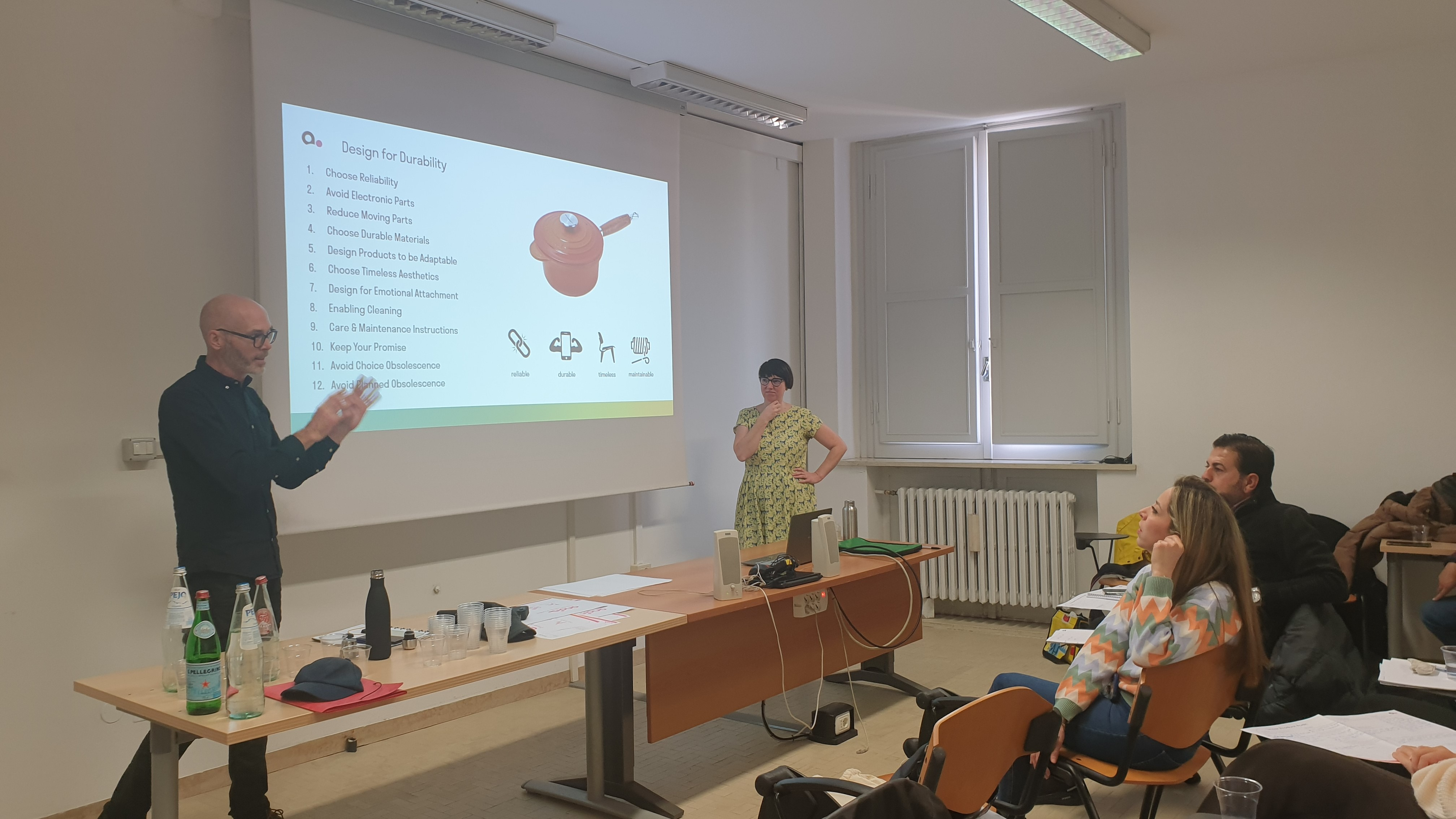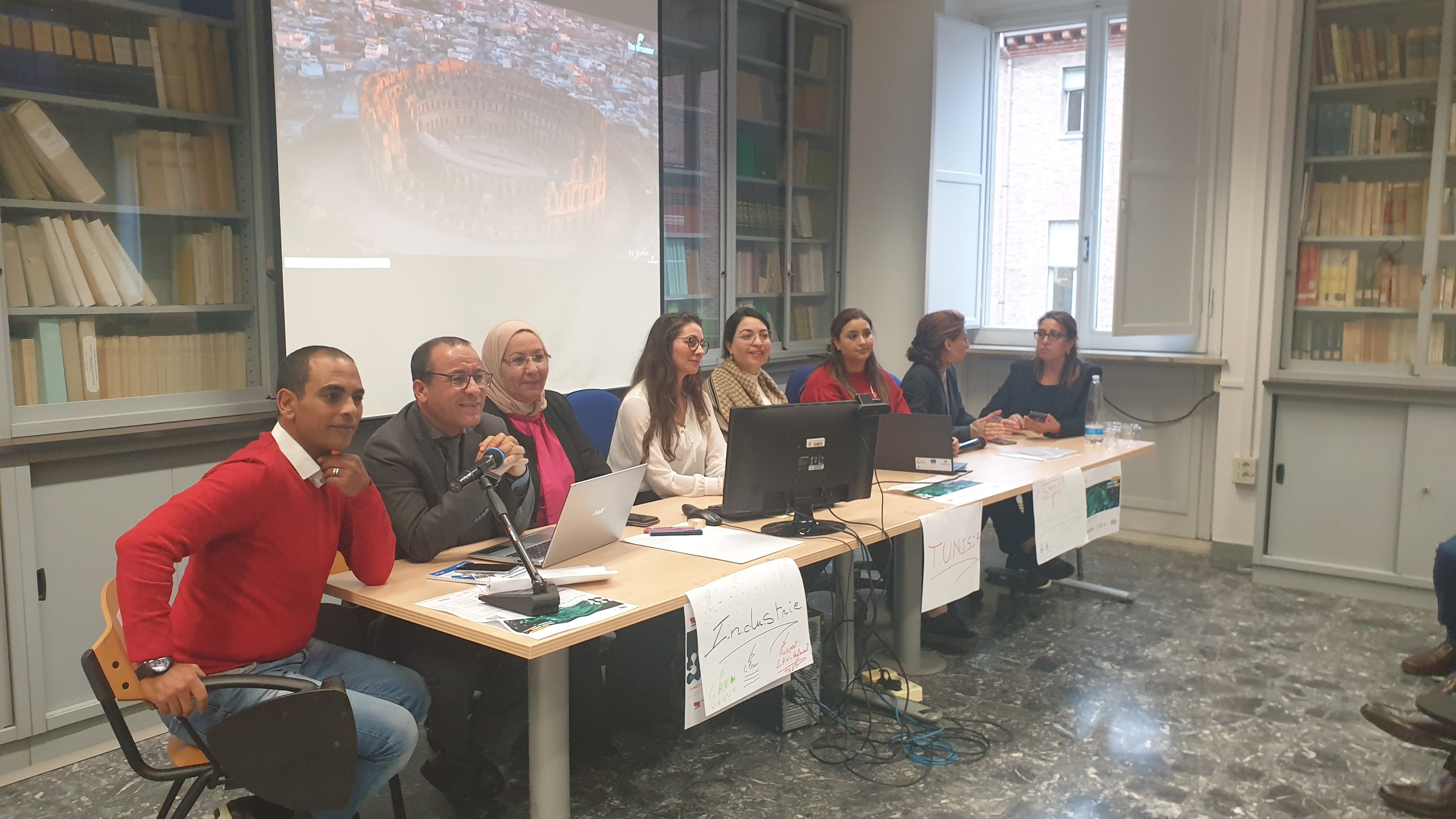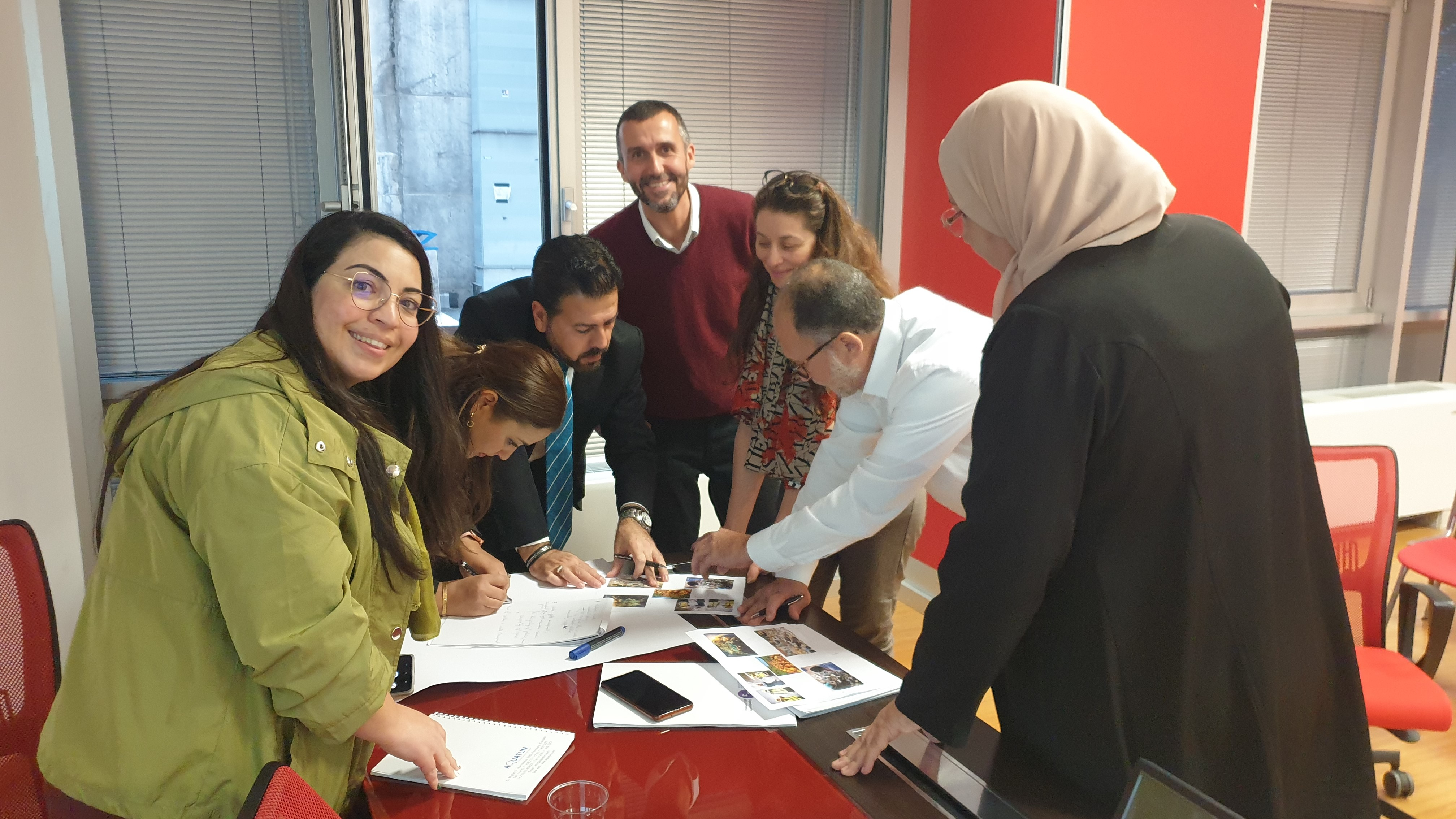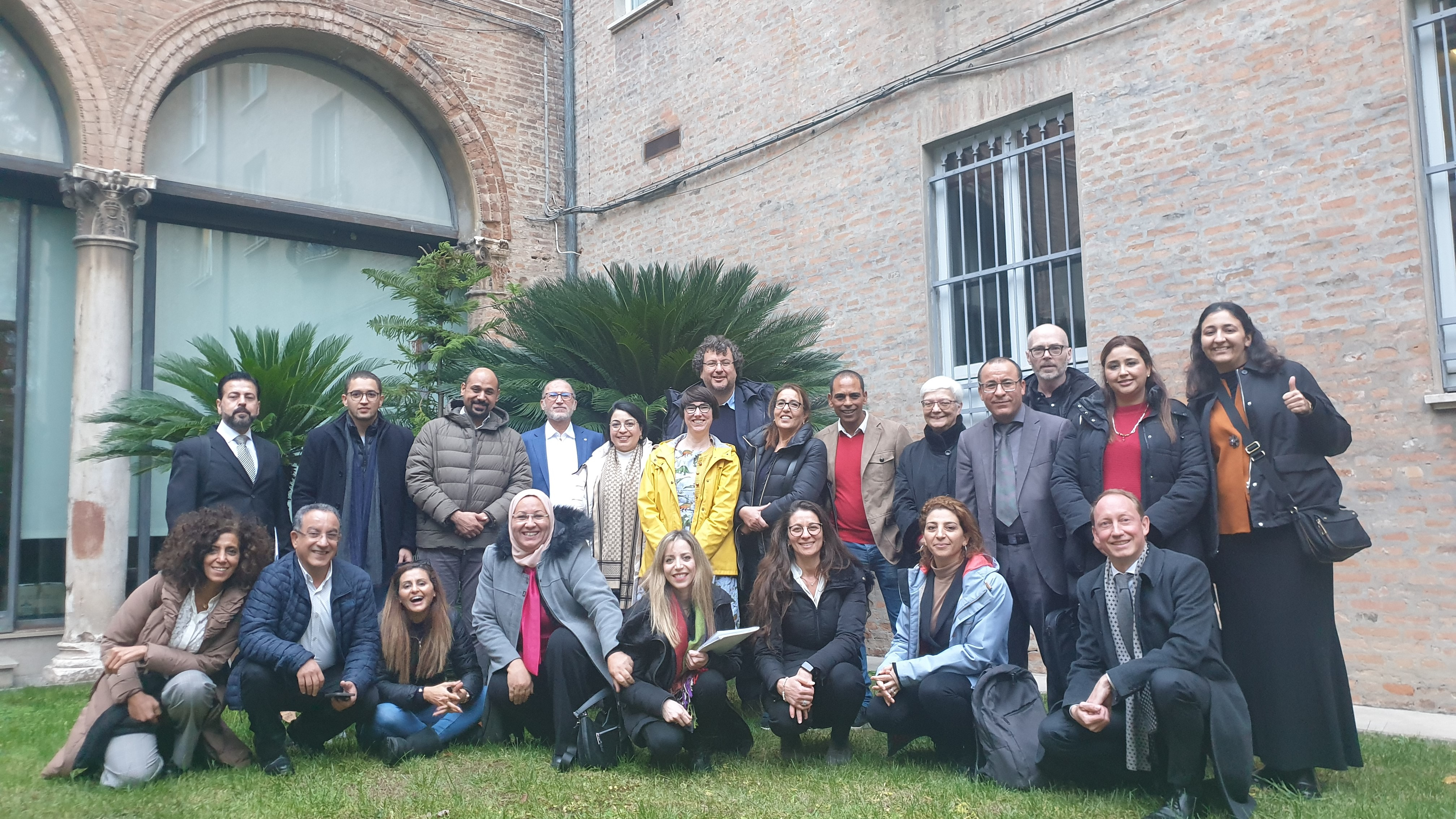

UNIDO training course on integrating industrial policy and the circular economy
03 December 2022

FERRARA, 3 December 2022 - There is growing awareness that the world cannot continue to increase the consumption of materials. Resources are limited and the ambition of lower-income countries to climb the ladder of development affects the availability of inputs and economic growth opportunities for future generations.
While sustainable production and consumption represents one of the key Sustainable Development Goals to be achieved by 2030, there is still skepticism in the policy debate about the possibility of reconciling industrialization targets and environmental protection.
Following an online course held in March 2022, an in-residence course, “Industrial Policy for Circular Economy”, hosted 17 policymakers from Tunisia, Lebanon and Morocco and took place in Rome and Ferrara. The course was funded by the Italian Ministry of Foreign Affairs and International Cooperation and implemented by UNIDO, in collaboration with the Department of Economics of Roma Tre University, the Department of Economics and Management of the Ferrara University, the Sustainability Environmental Economics and Dynamics Studies (SEEDS), and the Centre for Research on Circular Economy, Innovation and SMEs (CERCIS).


The course combined a variety of disciplines and professional figures, including from the public sector, such as the Italian Ministry of Environment and Energy Security, the private sector in the energy, financing and recycling fields (such as Eni, Banca Intesa Sanpaolo - through its subsidiary Intesa Sanpaolo Innovation Centre, Enel, Guidetti Systems). It also included research institutes, such as the Italian Institute for the Nuclear Energy and Alternative Energy ENEA, training institutions, such as CENTOFORM, institutions involved in policymaking through public – private partnerships, such as the Regione Emilia Romagna and the Emilia Romagna Enterprise Cluster Clust - ER, and UNIDO experts.
The course provided participants with fresh methods to integrate industrial and environmental policies, defined the contours and the instruments of industrial policy and the circular economy, and presented up-to-date evidence supporting the circular economy as a way to increase the competitiveness of industrial firms and the business opportunities to green industrial production.
Participants were asked to form working groups and to start thinking about action plans to develop circular economy practices in the industrial production process of their countries by using the concepts and information acquired during the different lectures.
Participants agreed on the need to change decision-making through new forms of coordination across different stakeholders, and on the need for new ways to design industrial policy by integrating the circular economy in place of the traditional linear model of production.
